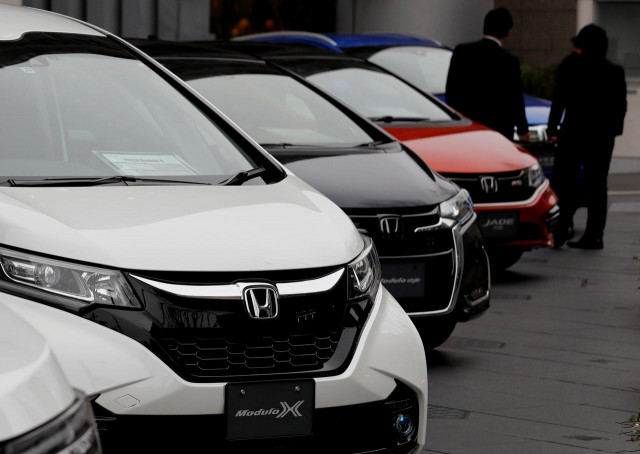Why cars are expensive in Pakistan?
PakWheels co-founder says overpricing without int’l standard features real issue

What comes to your mind when you think about buying a car in Pakistan – taxes? Duties? Little or almost no safety and quality features … or almost no value for your money?
That’s right; not only this is what is being produced and sold but, at the moment, there is no focus at all on the production of cheap cars having features of international standard.
The Express News’ talk show, The Review, on Saturday night shed led on the issues pertaining to the automobile industry, pricing mechanism, hurdles in localisation of industry, protection of consumers’ interests, safety and quality standards, government’s role, future outlook and the next five-year policy as well as the future of electric vehicles in Pakistan.
The hosts – Shahbaz Rana and Kamran Yousaf – discussed in detail the factors that influence the pricing mechanism, compared the brands with India, and dug deeper into the issues being faced by the consumers.
Suneel Munj, the co-founder of PakWheels.com, said that there was no doubt that cars were not only expensive but there was no clear policy to ensure safety and quality features in Pakistan.
“Cars are expensive but the real issue is that the buyers do not get the best value for their money,” Munj said, adding overpricing and that too without the international standard safety and quality features was the real issue.
MNA Ali Pervaiz said that “cartelisation” is evident from the heavy presence of specific players of the automobile industry in the market. The lawmaker emphasised on the need for providing conducive environment and positive competition.
Pervaiz also blamed the ban on the import of cars for cartelisation.
Engineer Asim Ayaz of the Engineering Development Board (EDB) – the apex government body under Ministry of Industries and Production – however, said that the government did not control prices nor the features, adding that the EDB monitors Completely Knockdown (CKD) units’ imports. “Top-of-the-line vehicles have all the international features,” Ayaz said.
“Price control should be a subject of the government instead of the auto industry,” Munj incorporated, adding that the industry should be asked to explain how different things – taxes, dollar rate and local production of parts – influence prices and the government should work on how prices can be reduced. “The government should monitor auto industry just like it monitors a retail shop,” he said.
Read more: Car sales rise 15% in December
Pervaiz said that reasonable competition should be increased and defects in the fiscal policy pertaining to the auto industry must also be identified, adding that increasing the car-manufacturing volume will reduce prices.
“The situation will get better when competition is increased,” Ayaz said, adding that things will start getting better from this year as several new players have obtained licences and a few have already started working in Pakistan.
“The government should effectively play a regulator’s role to protect consumers’ interests,” Munj said. On the auto policy, he said that “consistency is important”.
Suggesting a way forward to reduce car prices, Munj said, the government should begin by reducing taxes and making it mandatory for the industry too to not increase prices.
Pervaiz suggested that the government should revive the Competition Commission of Pakistan so that it could create a competitive environment for the industry. He was all in for promoting “made in Pakistan” philosophy, saying the auto industry should also be given reasonable protection.
Ayaz while emphasising that the consumers were the No 1 priority for the government said the “big three” auto companies have also invested a huge amount of money in Pakistan.
During the discussion, issues pertaining to import of cars, transfer of technology, upcoming auto industry policy and electric as well as hybrid vehicles were also discussed.



















COMMENTS
Comments are moderated and generally will be posted if they are on-topic and not abusive.
For more information, please see our Comments FAQ